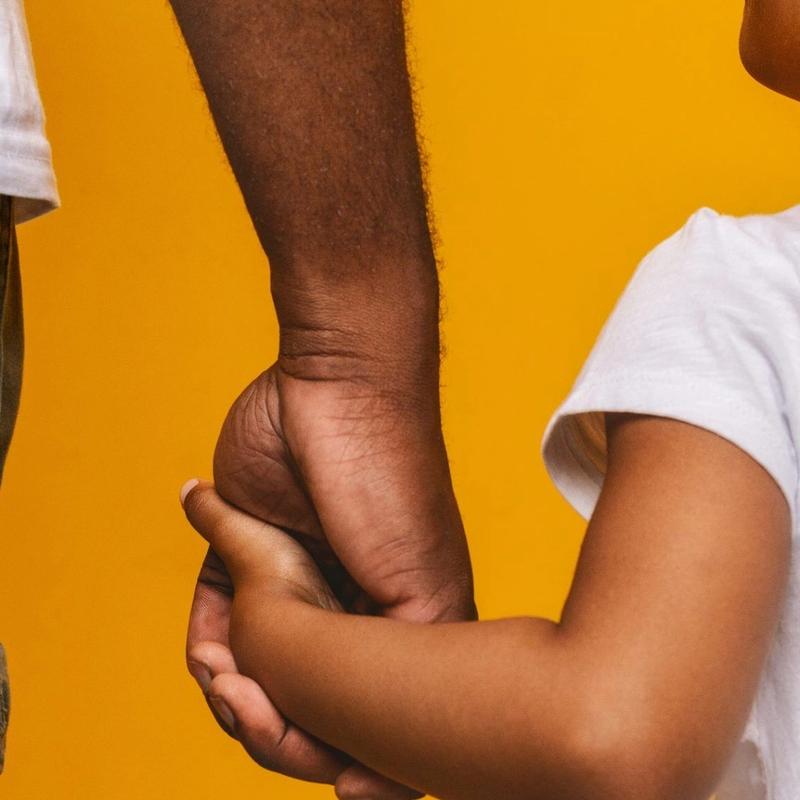Questions Are Opportunities
Last month, I found my 10-year-old in tears. Questions of transgender identity had come up in a project she was doing with a school friend. My daughter had explained that, as a Christian, she believed that God created each of us and made us male or female, so that even if we didn’t feel like we fit with our sex, we could know that God gave us the bodies we have on purpose.
Her friend said she didn’t want be friends anymore.
Many of us parenting today grew up feeling like we had the moral high ground. My husband was raised in Oklahoma, in a world where people actively respected the fact that he went to church, even if they didn’t go themselves. Our kids are living the reverse. Especially when it comes to gender and sexuality, Christian beliefs are seen as actively immoral. The change can feel disorienting. But rather than seeing our cultural challenges today only as obstacles for our kids, I’m increasingly convinced they’re opportunities to do three things:
First, to learn together with the kids we love.
Second, to bathe them in the Bible from the start.
Third, to help them see that following Jesus comes with a cost.
1. Learn together.
We do a quick-and-dirty family Bible time before bed. I play the keyboard very badly while our older kids sing along, and our 2-year-old launches himself off various surfaces. Then we read a Bible passage, ask a few questions, and pray. Right now, we’re reading through Genesis. I’ve read Genesis many times. But my kids often ask questions I hadn’t really thought about. Sometimes, I have to say, “I don’t know.”
A piece of me doesn’t like this. I’d rather have the answers there and then. But the more I think about it, the more I’m grateful for those moments, because they give us opportunities to learn together. Just as the times I have to tell them that I’m sorry for how I just treated them and ask forgiveness are opportunities for them to see that I’m a sinner just like them, the times I say, “I don’t know–let’s look into that” are opportunities for them to see that I am learning too. Admitting when we don’t know doesn’t undermine what we do know. Quite the reverse. Our kids will soon realize we don’t know everything when it comes to the Bible. If we try to pretend that we do, they’ll wonder if we’re always faking it.
Sometimes, when I don’t know, it’s because no one really knows. The book of Job is one of many places in the Bible where we learn that we frail creatures aren’t designed to know all things.
More often, I don’t know the answer to the questions my kids have, but someone does. Often, when we look, we’ll find that our Bible-believing brothers and sisters have been hard at work on our behalf. We can read a book or article and get back to our kids. Or we can read alongside our kids. Either way, we’re learning together.
2. Bathe in the Bible.
For some Christian parents, the outside pressure from things their kids might hear about sexuality at school is an unwelcome intrusion, forcing them to have conversations they’d rather postpone. But the more I read the Bible, the more I’m convinced that we should have those conversations early and often. In fact, it’s hard to read much of the Bible with your kids without talking to them about sex. “What’s a prostitute?” may not be the question you most want to hear from your 6-year-old, but if you read the Bible with them, you’ll get it soon enough!
And as we read the Bible with our kids, we’ll find that the metaphor of marriage as a picture of God’s love for his people in the Old Testament and Christ’s relationship with his church in the New is tremendously important. Just as God is revealed to us as a Father, so Jesus embraces us as a bridegroom. This truth lies at the heart of God’s design for sexuality. It’s the reason why marriage is an exclusive, life-long commitment. It’s the reason why marriage is male-female, as Jesus and the church play different roles in the great drama to which marriage points. It’s the primary reason why God made us male and female in the first place, rather than just making us asexual reproducers! We need to have this theological building block in place before our kids confront the challenge of a culture with a different starting point for sexual ethics.
We also need to bathe our kids in the Bible for them to differentiate between things in our culture that have actually come to us from the Bible from things that stand against the Bible’s teaching.
Last week, my 8-year-old told me that her teacher had been talking to the class about the fact that black lives matter and then had “randomly started saying that people could choose if they wanted to be a boy or a girl.” Because we’ve read the Bible together, my daughter knows that validating black lives and validating transgender identities don’t go together. She knows that Christianity has been multiracial, multicultural, and multiethnic from the first, that we meet the first black Christians in the book of Acts (e.g. the Ethiopian eunuch in Acts 8:26—40) and that the original call to love across racial, ethnic, and national difference comes from Jesus himself (e.g. the Parable of the Good Samaritan in Luke 10:25—37).
We need to bathe our kids in the Bible before they hear from their teachers and friends–not just after. And this isn’t a regrettable reality. It’s a chance for them to know their Savior more!
3. Count the cost.
When I found my 10-year-old in tears because her good friend had rejected her, my mother’s heart was moved. The first thing I did was hug her. We all want to protect our kids. This is a natural and right instinct. But as much as my daughter’s conversation with her friend was hard, I was glad she had experienced it. Growing up in the Bible Belt in the 80s and 90s, my husband never had to count the cost of being a Christian. It wasn’t until he moved to England after college that he found himself out of joint with his surrounding culture. And right away, he saw the benefits of living in a world where being Christian isn’t cool. Looking around at church on a Sunday, he knew everyone there had counted the cost. And in small ways, I want my kids to count it too. My job as a parent isn’t to prepare them for one day in the future when they’ll be a real disciple of Christ. It’s to walk with them in their discipleship today. And Jesus is painfully clear with us that following him means counting the cost (see Luke 15:25—32).
In response to her friend, my daughter had said she was sorry for hurting her feelings and gently asked if there was someone close to her who identified as transgender. She’d also more fully explained why she as a Christian believes that God made us male or female on purpose and that he loves us as we are. I was proud of her humble, clear, and loving response. Peter urges us,
in your hearts honor Christ the Lord as holy, always being prepared to make a defense to anyone who asks you for a reason for the hope that is in you; yet do it with gentleness and respect (1 Peter 3:15)
I felt like my daughter had done just that. Thankfully, her friend had changed her mind and agreed to be friends again. I told my daughter I was proud of her and that this would likely be the first of many situations where her faith put her out of step with friends and classmates. But I also told her that I found it hard as well when friends rejected me for what I believe.
I don’t have all the answers. Nor do you. But in all our inadequacy, we can learn with our kids, bathe them in the Bible, and help them count the cost. And as we walk with them, we might just find the challenges they face are as good for our discipleship as they are for theirs.
Content adapted from 10 Questions Every Teen Should Ask (and Answer) about Christianity by Rebecca McLaughlin. This article first appeared on crossway.org; used with permission.





